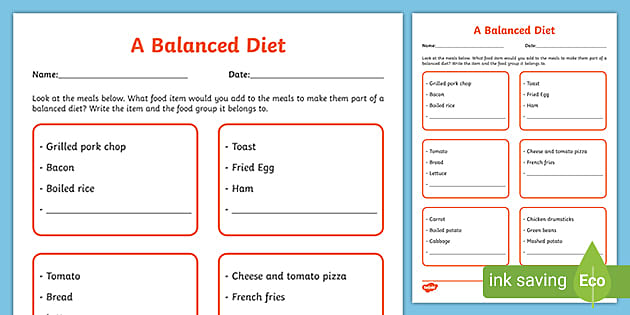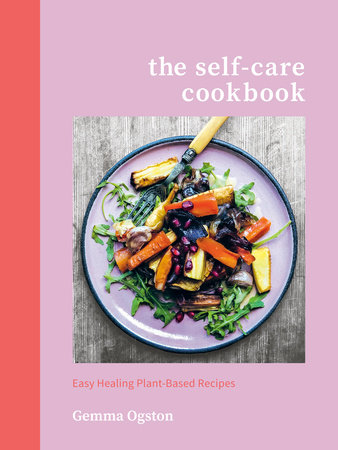
The best way to achieve your athletic goals is by choosing the right sports nutrition program. It is important to eat a healthy diet. You should not consume too many calories, or too little protein. It's common to assume that carbohydrates are essential for athletes, but they're the most important component of a balanced diet. The correct balance of carbohydrate, proteins, and other fats can help fuel your body and enable you to reach your goals.
Athletes should eat meals at least three hours before a competition or exercise, in order to allow their bodies to digest the food and minimize any gastrointestinal upset. It is vital to eat a healthy diet with plenty of carbohydrates, proteins, and fat. You should also limit your intake of starchy veggies and junk food. A balanced diet of whole grains, lean meats, fruits, veggies, and whole grains is essential for good sports nutrition. These foods are great sources of vitamins, minerals, but not good sources of calories.

Carbohydrates is the most important food to an athlete before an event. They are the primary source of energy. Carbohydrates can be found in milk, bread and cereal, as well as grains, fruit and vegetables, and other foods that are high in them. It is best to eat carbohydrates in small amounts and to avoid high-fat, high-protein meals. For best results, eat a high-carbohydrate meal before an event and consume it at least two hours before the competition.
A balanced diet should be included for athletes, rich in complex carbs and healthy fats. A healthy diet includes 45%-66% carbohydrates, 10%-30% protein, and 25-35% fat. Drinking plenty of water before, during, and after a sport is also important. It is important to eat the right foods and at the right times in order to maximize performance and avoid muscle damage and oxidative stress. In addition to a proper diet, athletes should also incorporate supplements to improve their recovery process.
Balanced carbohydrate and fat intake is essential for athletes. In the digestive process carbohydrates are converted into glucose, which is the body’s primary energy source. It is converted into glycogen, a type of fat that is stored in muscle tissue and is a key source of energy during an athlete's workout. By consuming carbohydrates and fatty foods before and after an event, athletes can increase their glycogen stores and avoid the risk of dehydration.

Athletes should consume sufficient water to replenish their bodies with dietary fiber. Ample hydration is essential for optimal health. For optimal health, your body needs to have enough sodium and fluids. This is the best way for muscle cramps to be avoided and to improve performance. Athletes should always keep their diet balanced with their training schedule. This is especially difficult for endurance athletes. It can also cause headaches and cramps.
FAQ
Are Cardio exercises good or bad for your health?
Cardiovascular exercise has many benefits. It improves blood circulation, strengthens heart muscle, gives you energy, and can even help you lose weight.
Cardiovascular exercise includes running, biking, hiking, swimming, tennis, basketball, soccer, volleyball, football, etc.
It is important to remember that cardio exercises should not be performed at high-intensity levels. This could lead to injury.
You should only perform the cardiovascular exercise if you are feeling well.
Never push yourself past your limits. You could injure yourself if you do.
When you engage in cardiovascular exercise, it is best to warm up first. Gradually increase the intensity.
Be aware of your body and listen to it. If you feel pain when doing cardiovascular exercise, you should immediately stop.
It is also advisable to rest after a cardiovascular workout. This allows your muscles to recuperate.
To lose weight, you should include cardiovascular exercise in your daily routine.
It is the most efficient way to lose weight and stomach fat.
Which workout is best for men?
It all depends on your goals. If you want to lose weight, cardio workouts are great because they burn calories faster than strength training exercises.
For those who want to gain muscle mass, strength training will be a better option, as it increases your lean body mass.
Both types of exercise have proven benefits if you want to improve your overall health.
If you are looking to lose weight quickly, I recommend HIIT or sprint-interval training. This type training will help you quickly lose fat by increasing your metabolism. It increases your endurance so you can continue training even when tired.
Which dietary supplement is good for weight loss?
It is important to exercise and eat right in order to lose weight. Some people find certain supplements helpful.
Studies have shown that omega-3 fatty acid may be beneficial in weight loss. Omega-3s, essential fats, are critical for brain function and cell membrane health. They can be found as a part of seafood such as tuna, salmon, shrimp, and cod live oil.
Other research suggests that green tea might be beneficial for weight loss. Green tea has catechins, which are antioxidants that can help increase metabolic rate and encourage weight reduction.
Statistics
- Get free shipping and 25% off today. (healthline.com)
- According to the American Heart Association, blood pressure should be checked at least once every two years, beginning at age 20. (my.clevelandclinic.org)
- Cardmembers earn 5% Back at Amazon.com with a Prime Credit Card. (amazon.com)
- According to the American Academy of Dermatology (AAD), men over 50 are at a heightened risk of developing it. (healthline.com)
- 10 pounds in a month is likely during a lean bulking phase, especially for beginners. (muscleandstrength.com)
External Links
How To
What nutrients is a man supposed to consume daily?
Daily nutrition is essential for men's healthy growth. The body requires vitamins and minerals, protein, carbohydrates, fats (fats), water, fiber, as well other essential elements.
Specific nutrients are also required by the male body at different times during the day. To give you an example, the body uses energy it receives from food to make hormones and antibodies. When you awake, protein is used by your body to build muscles or repair damaged tissue.
Your body uses the night to break down fat and store extra energy as glucose. Your body still requires sufficient nutrients and calories even though it needs less calories. If you feel hungry, you may consider having a snack during the evening.
For your body to function properly, it needs adequate amounts of protein and carbs. You may feel sore muscles if you exercise hard.
To avoid this, you need to eat carbs and proteins within two hours of training. Your body will break down stored glycogen to provide glucose for energy.
You must also eat protein right after you finish your workouts. This prevents muscle tissue from being broken down while you are sleeping.
Lactic acid is produced by the body during periods of intense exercise. The body produces lactic acid when there is too much activity. This can cause fatigue. Eat foods high in carbohydrate, such as fruits, vegetables, to avoid this.
Carbohydrates can give your body the energy it requires to recover from intense exercise.
Additionally, lean meats, fish and eggs, dairy products, yogurt, cream, cheese, yogurt and beans can be added to your diet.
All of these foods have high-quality protein. Protein is important for muscle growth and repair. Protein also supplies the amino acids your body requires to make sex hormones, such as testosterone.
A healthy skin, nails and joints requires sufficient dietary fats. Healthy men need to consume between 20%-35% of their total calories from fat.
Fat is good for your heart and helps you fight cancer. Your brain also functions properly thanks to fat.
You can get most of the fat you need from vegetable oils like olive oil, sunflower oil, corn oil, soybean oil, peanut oil, and safflower oil.
These oils are high in monounsaturated fatty acids (MUFAs). MUFAs reduce cholesterol and inflammation. They protect your cells against free radical damage.
Saturated Fats (SFAs), which are mostly found in animal products like meat, butter, and dairy products, include LDL ("bad") cholesterol. SFAs can increase LDL ("bad") cholesterol as well as triglycerides. They also promote weight gain and belly fat.
Plant-based oils such as vegetable oil, nuts, seeds, or grains are rich in polyunsaturated fats (PUFAs). PUFAs are good for your heart health and help to reduce inflammation. They also help control blood sugar and cholesterol.
Erectile dysfunction is common in men with low HDL ("good") cholesterol. A high intake of saturated fats leads to higher levels of bad cholesterol.
Because of the high levels of nitrates in red meat and pork, men with prostate problems may eat more of them. If cooked at high temperatures, the nitrates become nitrosamines. These compounds can cause cancer.
Most processed meats contain nitrites or other harmful chemicals. Avoid them completely.
The American Heart Association recommends eating no more than 2 servings of red meat per week. Instead, choose poultry or fish, beans, tofu and whole grain bread.